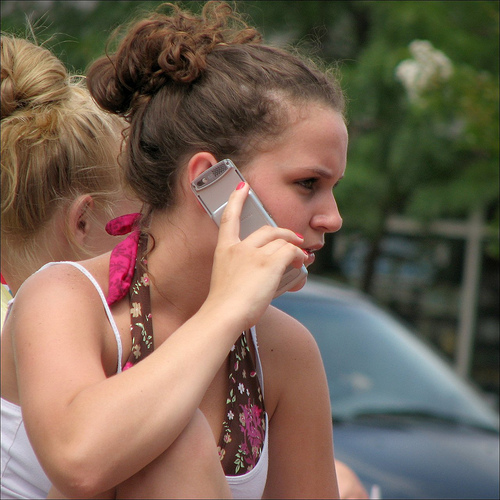The old saying “Sticks and stones may beak my bones, but names will never hurt me” has been long acknowledged as less than accurate.
Name calling and teasing can have real and very damaging effects, especially on young people. I‘m sure many of us can still remember names or verbal taunts from the playground or classroom.
Name calling not only causes emotional pain, it can also shape the way we perceive ourselves. We tend to internalise messages we get from others and after a while these messages shape our beliefs about who we are.
New research suggests that weight-based criticism in particular can have significant effects on how teens and tweens perceive their own bodies – even if they’re not overweight.
Weight Words & Teenage Esteem
The research, conducted by professor Timothy Nelson of Nebraska-Lincoln University, surveyed hundreds of public school students whose average age was 10.8 years. They collected participants’ heights and weights and calculated their Body Mass Index (BMI), then examined the relationships between weight-related criticism and children’s perceptions of themselves.
The study, published in the Journal of Pediatric Psychology, found criticism about weight can contribute to issues that go beyond general problems with self-esteem.
Overweight pre-teens who endured weight-based criticism tended to judge their bodies more harshly and were less satisfied with their body sizes than students who weren’t teased about their weight.
“We tend to think of adolescence as the time when kids become sensitive about their body image, but our findings suggest that the seeds of body dissatisfaction are actually being sown much earlier,” professor Nelson said.
Even Skinny Kids Affected
Of particular interest was that even when the researchers controlled for BMI and took being over weight out of the equation, they found that anyone who was teased about weight regardless of actual weight viewed their bodies more negatively. This means even if kids are a healthy weight being teased about their appearance will affect their view of their bodies.
The researchers suggested that children who develop such negative views of their bodies are at higher risk for internalizing problems, and developing irregular eating behaviours.
“In a way, weight-related criticism is one of the last socially acceptable forms of criticism,” Nelson said. “There’s often a sense that overweight people ‘deserve’ it, or that if they are continually prodded about their weight, they’ll do something about it.”
“In fact, our research suggests that this kind of criticism tends to increase the victim’s body dissatisfaction, which has been shown to be a factor in poorer outcomes with pediatric weight management programs. It becomes something of a vicious cycle.”
Helping Teens With Self Image
Helping teenagers have a realistic and healthy view of who they are, and particularly their own bodies, is an important role for adults helping young people through adolescence.
Elsewhere on this blog I have examined how teens, especially girls, are prone to adopt unrealistic expectations about their body image. Teasing and name calling add yet another layer in confusing and often destructive messages our young people take on board.
Adults need to be the voice of reason and reality for teens. Teenagers will do better when they are encouraged and equipped to be discerning about what they see and hear in relation to body image and self worth. Adults can do this by providing holistic messages of appreciation for who young people are, and teaching teens to think critically about media and peer messages concerning body image.
Helping Teens Stay Healthy
The other obvious issue is the increasing levels of childhood and adolescent obesity occurring in the most first world societies. It is estimated that approximately 15% of children and adolescents are clinically obese, with even more being seriously over weight.
As the research suggests being overweight can carry a stigma and negative perceptions of self that further compound the problem.
The ramifications of being over weight as a young person go beyond having issues of low self-esteem. There are numerous other serious health risks associated with overweight children.
In this regard adults, particularly parents, can assist by encouraging young people to eat well and exercise.
When it comes to diet a 2007 survey of Australian young people found only 20% were meeting the daily requirement of 4 serves of vegetables while only 39% were eating the recommended three daily serves of fruit. This was exacerbated by findings that 46% of students had fast food meals at least twice a week, and 44% having high-energy drinks four or more times per week.
The same survey found only 14% of students engaged in recommended levels of physical activity and about 70% exceeded recommended levels of sedentary behaviour.
Adults can help by providing and modeling a healthy diet. Similarly parents need to be mindful of ensuring their children develop active lifestyles both as children and adolescents. Encouraging participation in active hobbies and setting limits to screen time are two obvious ways of achieving this.
Image by charamelody











